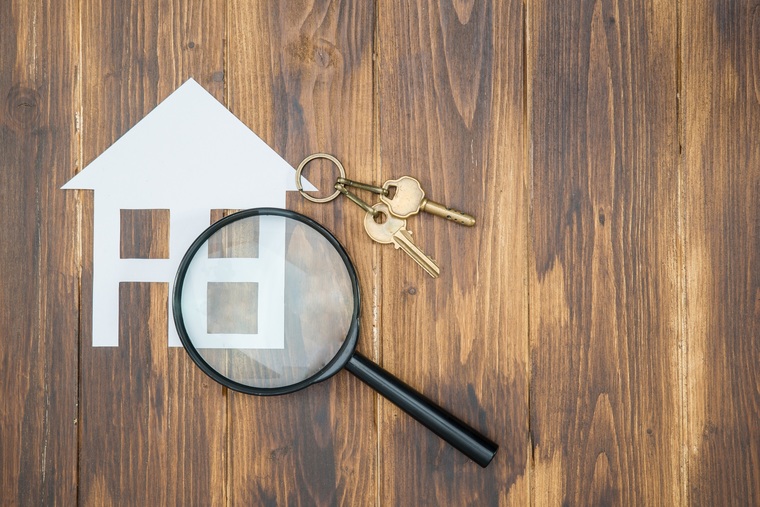Social Links Widget
Click here to edit the Social Media Links settings. This text will not be visible on the front end.
Deciding to sell – Home Resolutions


Choosing to put your house on the market is rarely easy, but if you must sell to move onto the next phase of your life, then you want to make sure your house is purchase-ready to get the most out of your investment. If you aren’t sure if you are ready to sell, you can always consider becoming a landlord or finding a property manager to handle tenants. But if you have decided to put your house on the market, it is time to let go of sentimentality and start thinking of it as a house again–not your home. Here are some tips for getting your house ready to sell and placing it on the market:
Do an audit: Go through the house, making notes of any projects that need to be completed, and anything that needs to be replaced, repainted or repaired. Here is a good checklist to get you started. If you are unsure about any major problems, you may want to hire an inspector to look at your home prior to putting it on the market so you can fix all issues and avoid getting stuck in heavy negotiations.
Start with a blank canvas: Look at your home from the perspective of a potential buyer. You will want to neutralize your space so anyone interested in the house can see its full potential. Keep in mind that you may love your red wall, wall-to-wall carpet or lavish art, but others may find it hard to see beyond the decorations to imagine their own taste in the house. Neutralizing the space can be as easy as painting the walls a soft white, paring down possessions or scaling back on updates. Once your home is turn-key with the basics, start to think about the updates that will make the most difference in your return on investment.
Get the most bang for your buck: If you are considering upgrades to increase the value of your home, stick to projects that will make the most sense, such as increasing the curb appeal by re-painting or replacing an outdated front door and upgrading the landscaping with easy-to-maintain plants and pathways. The first impression your home makes on a buyer is key to selling your home quickly. If your appliances are out-of-date, you may want to consider upgrading to energy-efficient models, which will appeal to a wider set of buyers. Avoid laying down new carpet; if the carpet needs replacing, consider wood flooring, as more people are replacing carpets with hardwood these days. Also keep in mind that your aesthetic will likely be different than those looking at your home, so avoid updates to the kitchen and bathroom that may offend the next homeowner. They will consider the need to replace these as a part of their offer. For more ideas on projects that bring a return, go here.
Find a listing agent: Once you are ready to put your home on the market, find a listing agent you trust will promote your home and bring the most return. Interview a number of agents to learn about their methods of marketing your home to other agents and potential buyers. They should be knowledgeable about the area, the market, comparable listings, staging and marketing techniques that will work best for you. Look at potential agents’ past listings to see the techniques they employ, the photographs and language they use to market the homes, how long homes have been on market and what their listings look like.
Price your home to sell: Pricing your house right the first time will help it sell faster. The great news is there are plenty of buyers looking to purchase homes right now, and this trend should continue. The concern for many homeowners ready to sell is that their expectations for the selling price of the home will not necessarily be met. Increase your chances of getting your home off the market fast by working with your listing agent to price your home right. Your listing agent will factor in a number of considerations when helping you determine the best price for your home, including comparable homes that have sold in the area or similar locations, the type of home, neighborhood, condition, etc.
Staging: Now that you have gotten through most of the process for putting your home on the market, look at your home through fresh eyes. Staging your home is a fine balance between making your home inviting and setting a canvas for the next homeowner to envision the space with their stuff and to fit their life. Your home should look inhabited but clean, uncluttered but not sterile. Whether you work with a stager or do most of the set up yourself, you will have to get rid of the clutter and pare down all your belongings to the essential.
-
- Thin out your closets; full closets look small.
-
- Remove all personal items, photographs, trophies and excessive collections so prospective buyers can envision the home as theirs.
-
- Pare down all your belongings to keep your home efficient and cleaning easy.
-
- Pay attention to the details; you want your home to be welcoming in every way.
Putting your home on the market can be stressful, but you can minimize stress by following these tips and other ideas for getting your home ready to sell. The better prepared you are prior to listing your home, the easier it will be to sell to prospective buyers. In the end, realistic expectations about how long it will take to prepare your home to go to market, what renovations will get you the best return, and what is the right price to motivate buyers will help your home sell quickly, saving you money in the long run.
What are your home-related resolutions for 2018? How are you doing on reaching your goals?
Preparing to buy – Home resolutions

 If you are ready to make the move towards purchasing your first home or upgrading to a new home, there are some considerations you should keep in mind to make the process easier. The housing inventory is up in most markets with the start of the new year, giving you more options. Whether you are just starting to save for your future home or you are ready to start searching, here are some tips you may find useful:
If you are ready to make the move towards purchasing your first home or upgrading to a new home, there are some considerations you should keep in mind to make the process easier. The housing inventory is up in most markets with the start of the new year, giving you more options. Whether you are just starting to save for your future home or you are ready to start searching, here are some tips you may find useful:
Assess your financial situation: If you have just started thinking about purchasing a home, now is a good time to do some research to see how close you are to accomplishing this dream. Check your credit score, assess your debt, and make a plan for paying down your credit cards and loans. Look at homes in your area of interest to gauge the general market value of those with features you want, and use a mortgage calculator to estimate what the down payment, monthly mortgage payment and property taxes will be. Now that you know where you are starting from, you can begin (or continue) the process.
Ready, set, save: With your estimated home costs in hand, you can determine what amount you need to save before you can make a purchase. There are some great online and mobile tools to help you create and track your monthly budget so you can maximize your savings every month; mint.com is a great option. If you already have enough savings for a down payment, make sure your monthly income can support your future mortgage payments by saving the difference in expenses for a period of time.
Create a plan: Before you start shopping for your home, be sure to have a plan. You probably already have an idea of what you are looking for, but you can make your search easier by creating a list of what features are necessary and desired for your home. We all have priorities for our homes, be it location, size, style, number of rooms, amenities or countless other features, so make sure you know what you are looking for and what you can’t live without. If you have a deadline for moving, keep it front-of-mind as you go through the process.
Find an agent: Once you (and your partner and your children) know what you are looking for in your home, find a real estate agent that can help you find the right place for you. Selecting an agent is a personal process, as well as financial relationship. If you have friends or family that have worked with an agent for their own real estate needs, ask for referrals. If you don’t know an agent yet, you can find an office local to the area where you are interested in buying, and interview brokers. Keep in mind you will be spending a lot of time with your agent, so you need to feel confident he or she understands your needs; the deal-breakers, wish list, budget and timeline. A good agent will work with you in refining these to reflect the reality of the market, and guide you through the entire process from pre-approval, home searching, closing and resources, to get you into your new home.
Pre-approval: If you already have a real estate agent, they can help you find a lending officer. You can also work with your bank of choice to find a loan that works for your financial situation and start the approval process. The amount the bank is willing to loan you will determine the top-cost of the home you can purchase.
Purchasing Process: Your agent will be able to guide you through the purchasing process, from pre-approval, to purchase and sale agreement, to inspection, financing and closing. If this is your first home, keep in mind there are some factors that affect the purchase of your home. If you are looking at a short sale, a foreclosure or bank owned home, the process will take longer than a traditional home sale from the owner or developer of the property. Be prepared to work with your broker heavily during closing, as the negotiating process is a critical aspect of getting the home you want for the best price. Your agent can also offer you tips to avoid hiccups during your financing process, such as avoiding any major purchases until after your home has closed; even furniture purchases for your new home can create financing issues. To learn more information about the home-purchasing process, go here.
Setting up a home: Once you have closed on your home purchase and are ready to start making your new home yours, create another checklist to make your transition as easy as possible. Your agent will likely have some useful resources for you, from moving companies, to local utilities and near-by amenities, that can help make the process smooth and efficient. If you are moving with small children, here are some tips to help you through the process and give your kids the best transition possible. Once you are moved and settled, you can start the process of creating the dwelling of your dreams.
For more information on Windermere Real Estate please contact us here.
 Facebook
Facebook
 X
X
 Pinterest
Pinterest
 Copy Link
Copy Link